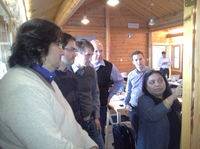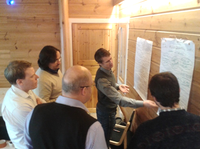INESC R&D Brazil starts first European project on Social and Human Sciences
In January, INESC R&D Brazil started working on its first European project. The goal with the MNEmerge (“A Framework Model on MNE’s impact on global development challenges in emerging markets”) is to evaluate the social and economic impact of multinationals operating in emerging markets, namely in Brazil, India and Africa, in questions related to technological innovation, social responsibility, poverty, environmental safety, public health and energy.
Other goals include developing a model to describe the relation between multinationals, direct foreign investment and the local economy, as well as identifying the role that public policies can play on the performance of commercial practices.
INESC R&D Brazil will be responsible for developing and assessing a study case focused on multinationals in the power sector. The goal is to study sustainable sources of energy in developing countries, and to evaluate the best methods to implement electric power in rural areas without access to the Sistema Interligado Nacional (SIN, or National Interconnected System). The methodology developed will be applied to assess the programme “Luz para todos”, promoted by the Brazilian government, whose purpose is to allow disadvantaged communities to have access to better health, education and work conditions by supplying electricity to the entire Brazilian territory.


The kick-off meeting of the MNEmerge took place in Lappeenranta, Finland, on 13 and 14 January, and was attended by the director of INESC R&D Brazil, Mauro Rosa, and the member of the Gabinete Brasil (Office for Brazilian Affairs), Leonardo Bremermann. “The goal with this kick-off meeting was to present an overview of the project and to define the goals and tasks for the first year of the project”, Mauro Rosa stated.
The project will be developed by an international and interdisciplinary team that involves nine partners. Other than INESC R&D Brazil, the Consortium includes the Finnish Lappeenranta University of Technology (coordinating entity) and Turku University, the British King’s College London, Oxford and Brumel University, and individual representations from institutions in Japan, India and Gana. According to the director of INESC R&D Brazil, this project represents “the first great opportunity for Brazilian and European representatives to conduct collaborative research”.
The MNEmerge is funded by the European Union’s 7th Framework Programme. The project has a total cost of three million Euros and a duration of 36 months.
The INESC TEC researchers mentioned in this article are associated with the following partner institution: INESC Porto.


